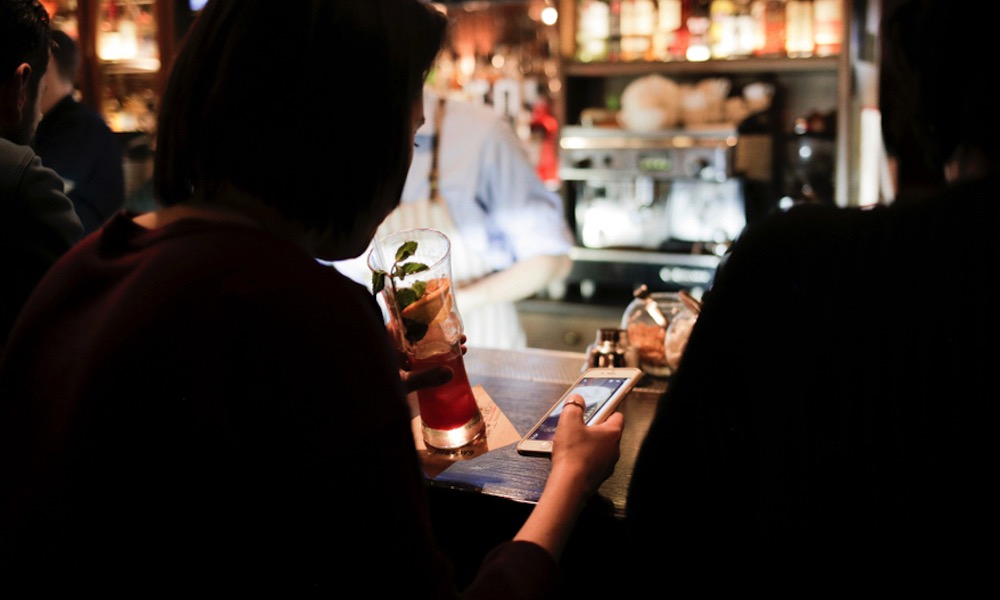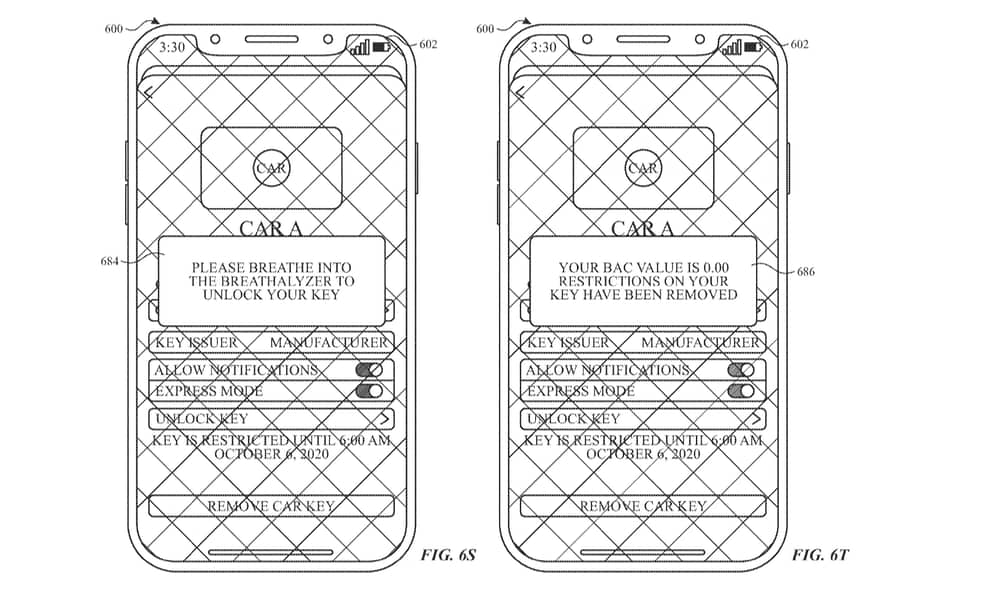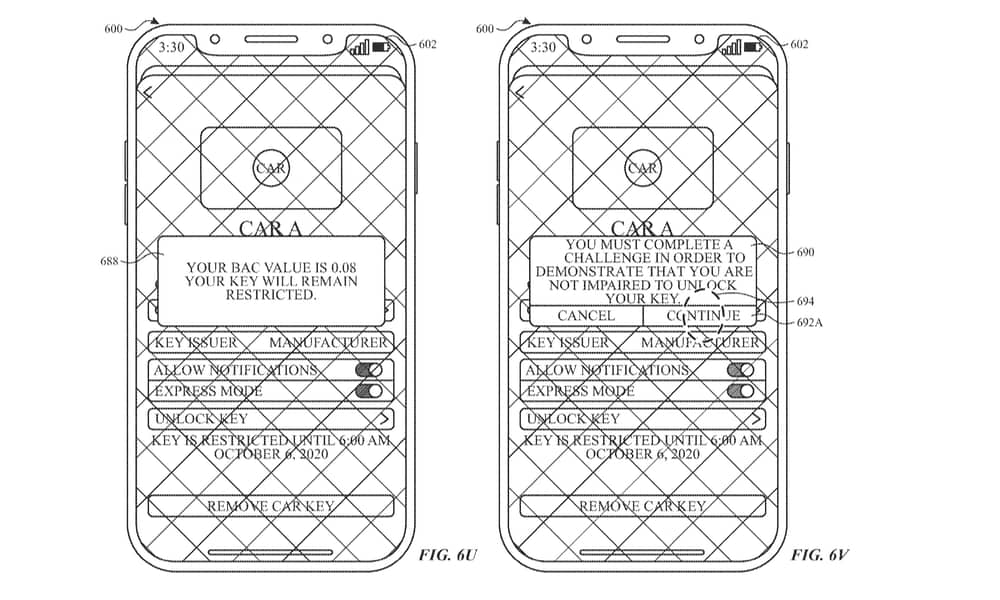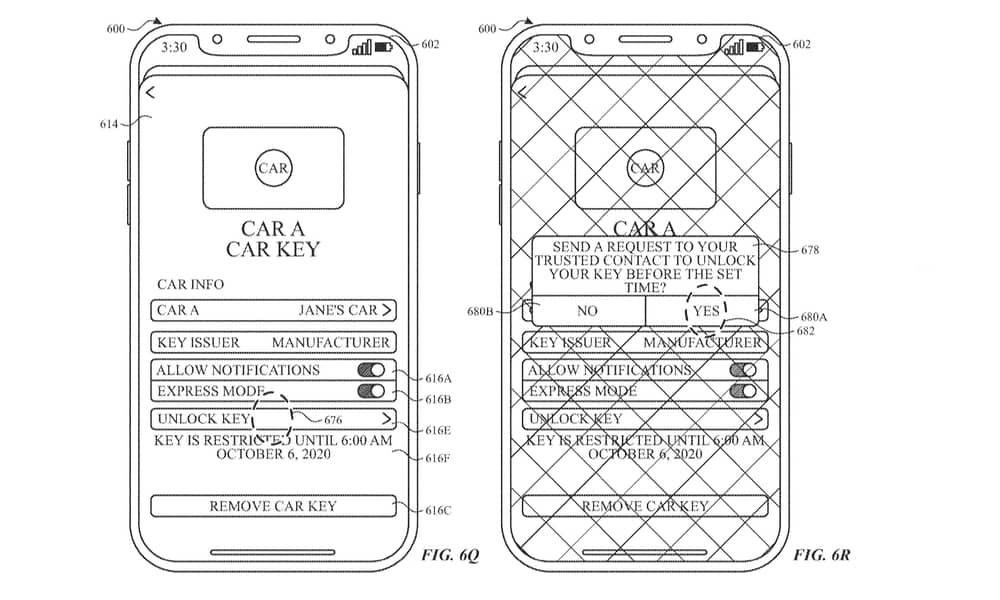Drunk? Your iPhone Could Refuse to Unlock Your Car, Apple Patent Shows
 Credit: illustratsiya / Shutterstock
Credit: illustratsiya / Shutterstock
Toggle Dark Mode
Apple is exploring new safety features for its Car Key technology to keep you from getting into your car when you shouldn’t be driving.
Last year a patent application from Apple revealed that the iPhone maker was working on ways to allow an iPhone or Apple Watch to determine if the user is intoxicated by offering breathalyzer capabilities. Now, the other shoe is dropping in a new patent application uncovered this week by the folks at Patently Apple.
The latest patent application specifically covers Car Key interfaces, but among the concepts presented is the idea of adding temporary restrictions that would prevent the use of Car Key under certain circumstances.
Apple’s Car Key already provides a way for users to set limits on when shared keys can be used to unlock or drive a vehicle. However, the new patent application outlines a way to expand those restrictions to tie them into biometric criteria, with measuring blood alcohol content being one of the main applications:
In some embodiments, if a user attempts to remove the temporary restriction on the secure credential prior to the predetermined time period lapsing, one or more unlocking criteria must be satisfied before the temporary restriction can be removed. For example, the one or more unlocking criteria can include one or more biometric criteria (e.g., a blood alcohol level below a threshold value).
The patent application also includes several illustrations demonstrating how the Car Key interface on the iPhone would work, including specific references to using a breathalyzer to remove the restrictions on your Car Key.
In FIG. 6S, in response to detecting input 676, electronic device 600 displays notification 684 instructing a user to breathe into a breathalyzer (e.g., a breathalyzer that is in wireless or wired communication with device 600).
Apple’s patent application doesn’t suggest that the company will necessarily build a breathalyzer into the iPhone or Apple Watch. Instead, the patent describes interfacing with a third-party breathalyzer accessory.
We’ve already seen several examples of iPhone breathalyzers over the years — there’s even one built into an Apple Watch band. However, for the purposes of this Car Key patent, such accessories would almost certainly have to be certified by Apple in some way to ensure they’re trusted.
The patent application doesn’t just cover breathalyzers. Several other methods for removing restrictions on a Car Key are proposed, including getting authorization from a “trusted contact” or successfully completing a challenge such as a mobile field sobriety test.
In some embodiments, the one or more unlocking criteria can include a requirement that the user successfully complete a challenge (e.g., a manual dexterity challenge; a mental clarity challenge (e.g., a series of math problems)) in order to remove restrictions on the secure credential.
In some embodiments, if a user attempts to remove the temporary restriction on the secure credential prior to the predetermined time period lapsing, the trusted contact is notified of the user’s attempt. In some embodiments, if a user attempts to remove the temporary restriction on the secure credential prior to the predetermined time period lapsing, a request is sent to the trusted contact to approve removal of the temporary restriction of the secure credential, and the temporary restriction is only removed after approval from the trusted contact.
As interesting as this idea is, there’s no need to fear that Apple will enforce this on everyone. The patent application suggests that these features would be entirely opt-in. Besides, they’re only useful if the person doesn’t have the standard key with them. We’re a long way away from a world where your iPhone will be the only means of getting into your car.
However, car owners could still choose to restrict their own Car Keys for safety reasons before going out for a night on the town. However, it’s also not hard to imagine how this would be especially useful when sharing Car Keys with friends and family members — especially young adult kids.
Of course, the usual disclaimers apply when talking about patent applications. However, this is the latest in several patents that indicate Apple is working on this technology, so it seems more likely to see the light of day than most patent applications.
[The information provided in this article has NOT been confirmed by Apple and may be speculation. Provided details may not be factual. Take all rumors, tech or otherwise, with a grain of salt.]










